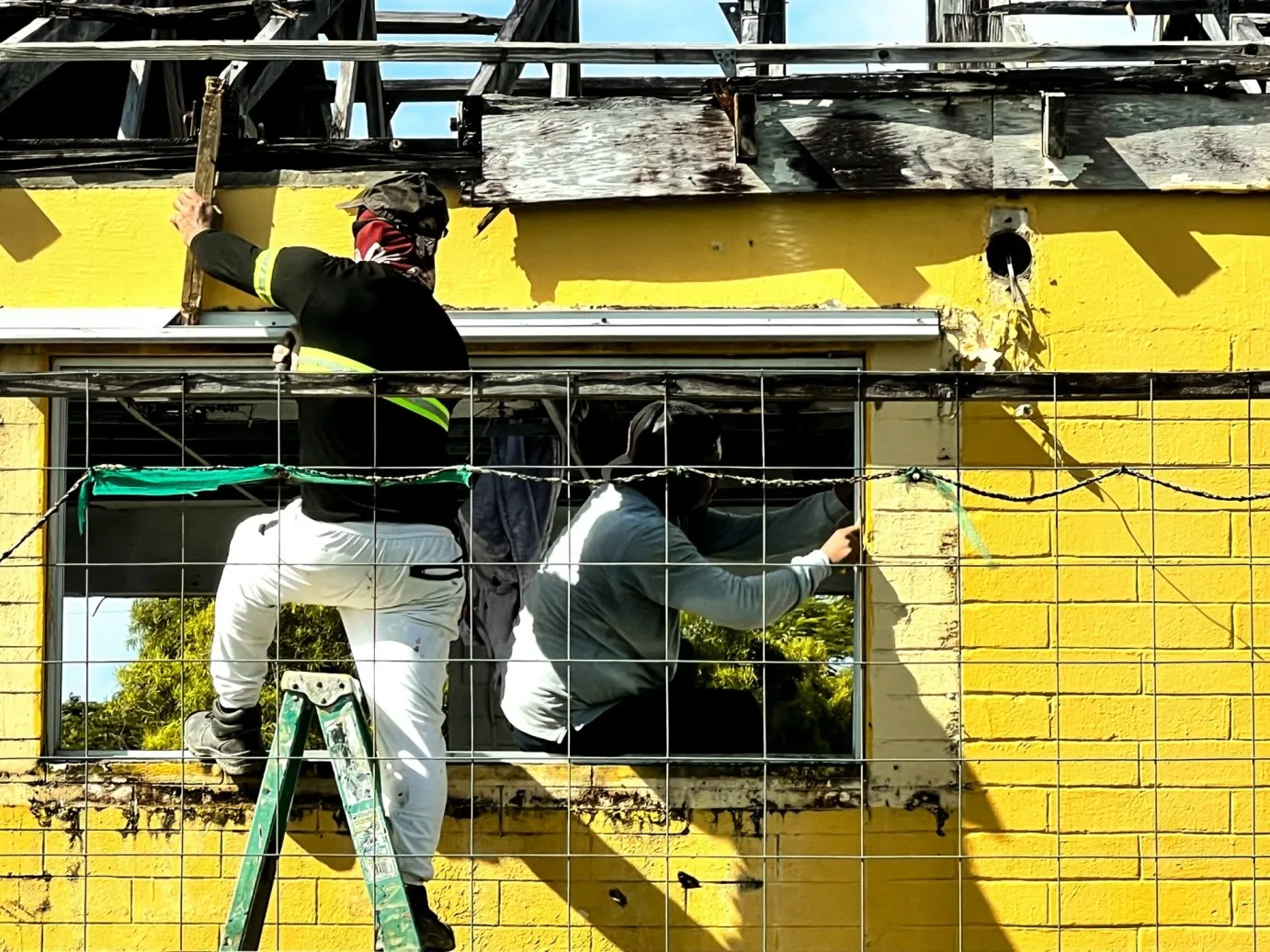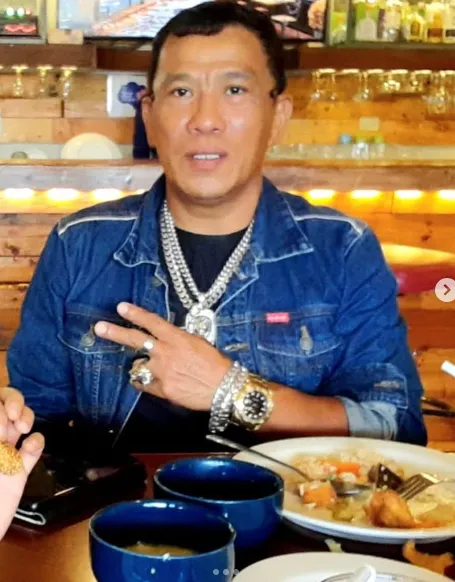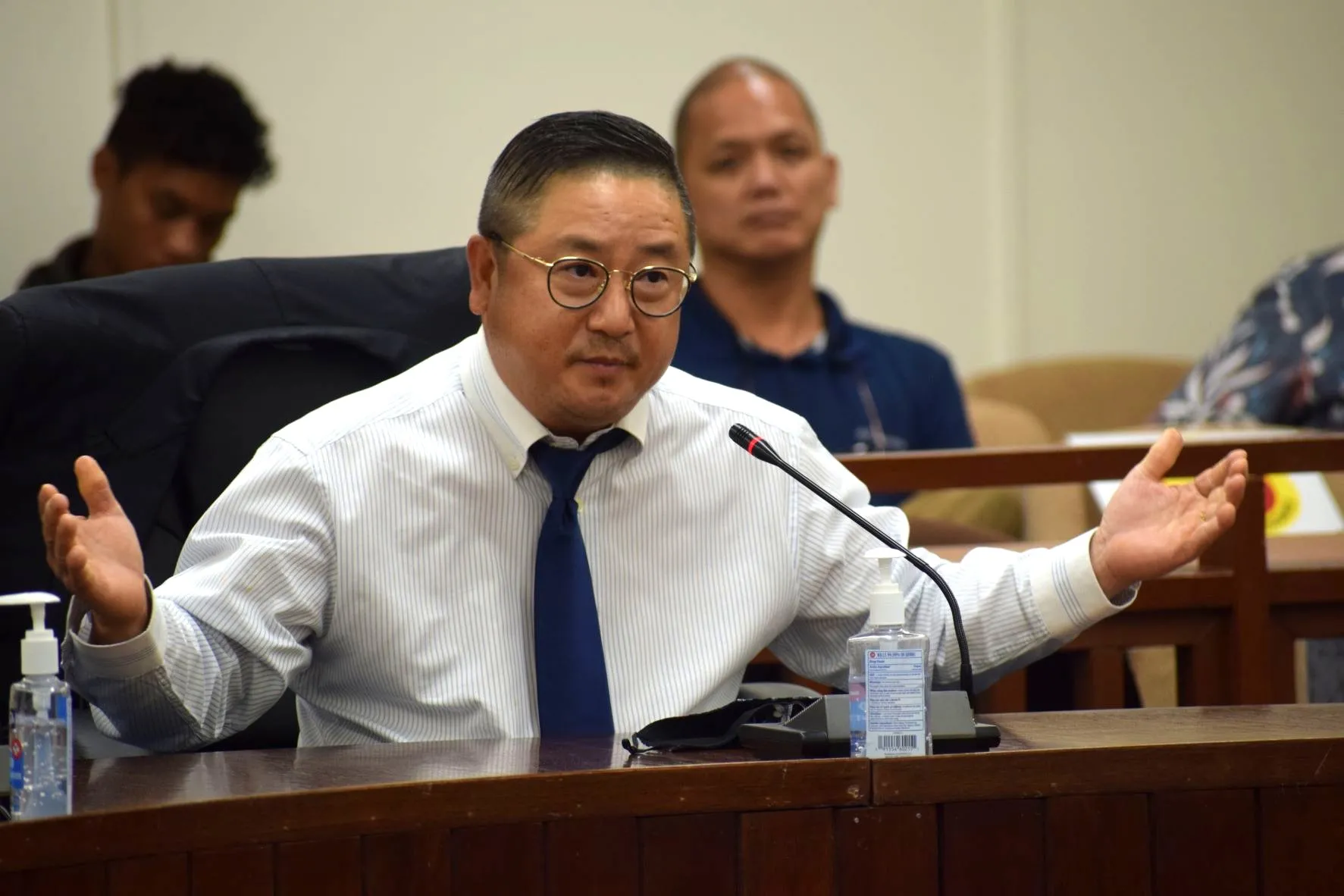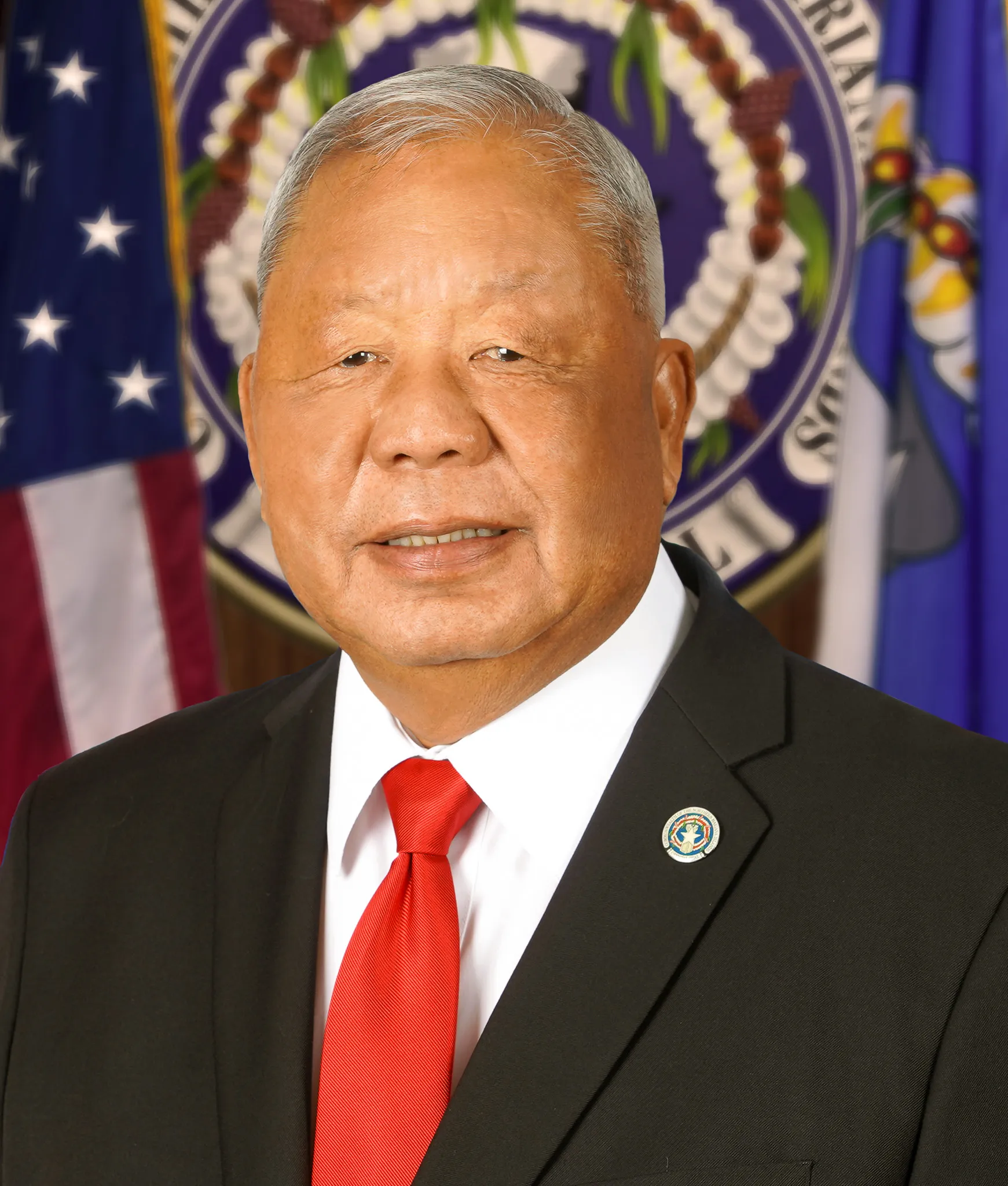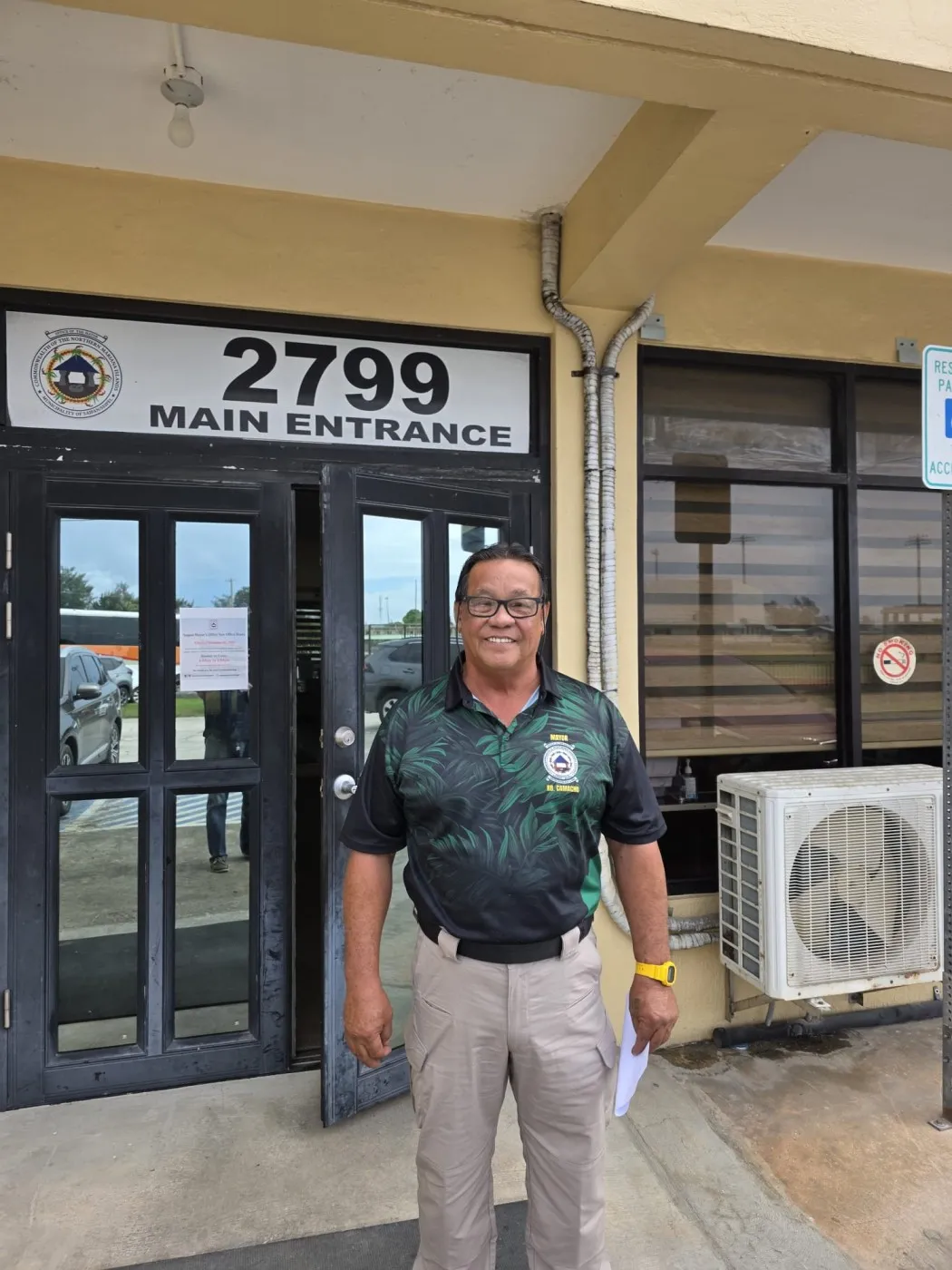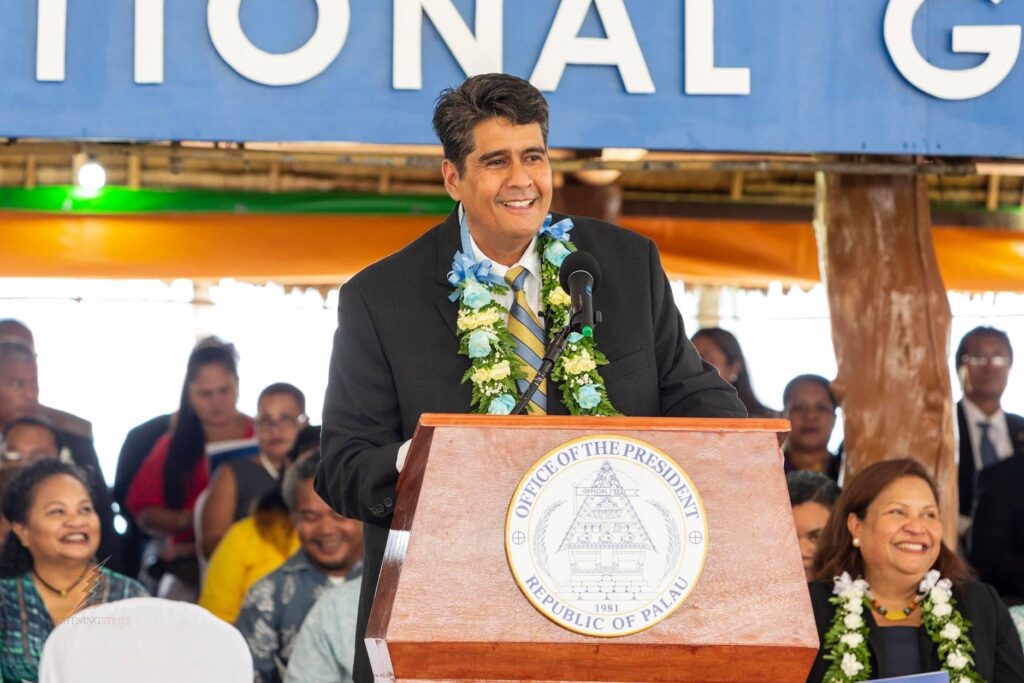KOROR (The Guardian/Pacnews) — Palau’s new president has vowed to stand up to Chinese “bullying” in the Pacific, and said his island nation will stand by its alliances with “true friends,” the United States and Taiwan.

Palau’s new president, Surangel Whipps Jr., delivers his remarks after he was sworn in on Jan. 21, 2021.
Facebook photo
Fifty-two-year-old Surangel Whipps Jr., a supermarket owner and two-time senator from a prominent Palauan family, was sworn in on Jan. 21, succeeding his brother-in-law Tommy Remengesau Jr.
In an interview with the Guardian, Whipps said the U.S has demonstrated over the years that it is a reliable friend of Palau, most recently shown by its delivery of 6,000 doses of the Moderna coronavirus vaccine as part of the U.S’s Operation Warp Speed.
“It’s important for countries to have shared values support each and work together. There is a competition, yes [between the U.S and China] but that’s their competition. It’s about what we believe,” Whipps said.
“There are thoughts that the ‘United States and China are in a race’; I think what it is really about is freedom and the exercise of democracy and many times, we feel big countries want to bully small countries. It’s important to have a strong partner that is there for us.”
In December, the U.S Coast Guard and Palauan maritime authorities seized a Chinese fishing vessel suspected of illegally harvesting sea cucumber inside Palau’s territorial waters.
“This is about securing our borders, and other countries that don’t respect other countries’ borders are not acceptable,” Whipps said.
“Stealing and offering bribes, that’s just got to stop, illegal fishing has to stop. As countries, we should also be responsible to our people and tell them not to go to other countries and do these kinds of things,” he said.
Whipps said countries that want to be regarded as global leaders should take responsibility for the actions of their citizens.
He said the former vice president of Palau, who also served as justice minister, had tried to contact the Chinese government about the vessel’s unlawful entry into Palau.
“But they don’t seem to care and that is unacceptable. They should take responsibility for their people, and it is like they encouraged them by ignoring them. It’s not good,” Whipps said.
He also pledged that Palau will continue its formal recognition of, and its close relations with, Taiwan, despite the growing presence of China in the Pacific.
“Palau’s position, as a friend of Taiwan, has caused a lot of collateral damage for Palau. Other countries that do not like this relationship, do things in the international community, like the U.N. and other Pacific organizations, to try to disrupt what Palau is promoting. I think that’s the nature of larger nations who want to bully,” Whipps said.
Palau is one of Taiwan’s 15 remaining diplomatic allies, and one of only four remaining in the Pacific (after Solomon Islands and Kiribati switched in 2019).
As a pointed show of support, Taiwan’s foreign minister, Joseph Wu, attended Whipps’s presidential inauguration, and the two nations have been in discussions over a travel bubble, given low case numbers in Taiwan and Palau, which remains Covid-free.
But Palau’s allegiance to Taiwan has not been without consequence: Palau is subject to an unofficial travel ban for Chinese tourists which has hurt the country’s tourism-dependent economy.
Whipps has been portrayed as a generational change during the spirited, but comparatively good-natured, presidential campaign held over two rounds in October and November. Palau’s electoral cycle mirrors that of the United States, with which it has a Compact of Free Association, which covers military co-operation and financial assistance.
Whipps said re-starting Palau’s tourism-dependent economy post-Covid is a priority, and that he hopes to vaccinate most of his country’s 18,000-strong population by summer.
But he said climate change presented Palau’s greatest long-term challenge. Most of the population lives close to the water, and the country’s only hospital is near the coast where it is at risk of being wiped out by a typhoon or storm surge.
“We see [climate change] on a daily basis, other people don’t,” Whipps said. “We need to make people understand, especially the larger countries, that the threat is real and we should work together to find a solution.”


